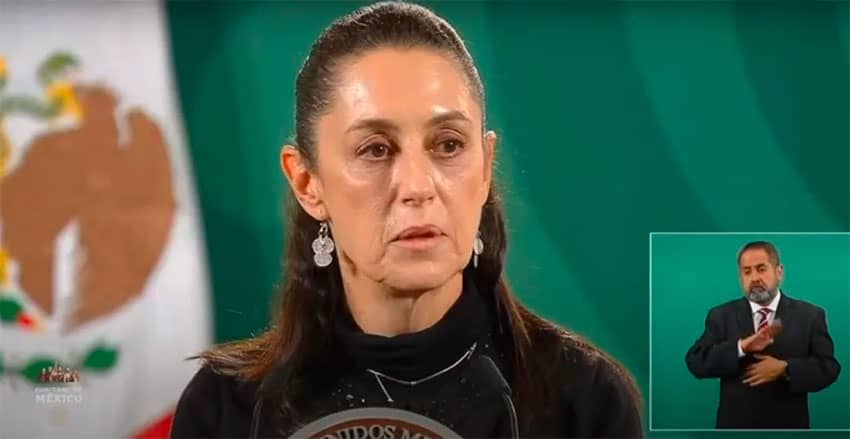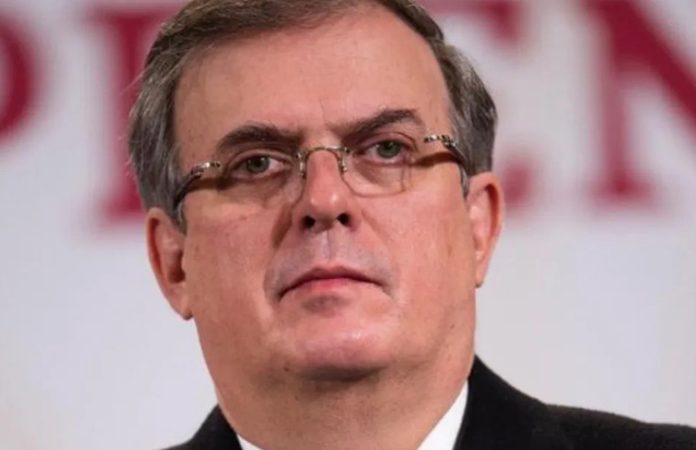Foreign Minister Marcelo Ebrard claimed Sunday that his responses to questions posed to him by The New York Times about a Mexico City Metro line that was built while he was mayor and on which a devastating crash occurred last month were “completely ignored.”
Ebrard, mayor between 2006 and 2012, made the claim even though a Times investigation that concluded that shoddy construction work on an overpass on Line 12 caused it to collapse on May 3 did in fact cite several of his responses.
In a Twitter post, the foreign minister also said he would share his “assessment of the technical assertions and the political intent” of the Times probe after official reports into the cause of the crash that claimed the lives of 26 people have been released.
In a 15-page response, which Ebrard published online on Sunday, the former mayor addressed 13 questions put to him by the newspaper.
While the Times omitted much of the detail in his lengthy responses, it did acknowledge that “Mr. Ebrard said that ‘the issues observed’ during construction of the Metro line did not affect its operation” because “all observations” from federal auditors “were resolved.”
The newspaper also acknowledged that “he suggested the cause of the crash may have been tied to maintenance, saying it was impossible to know whether his successor [Miguel Ángel Mancera] ‘conducted all of the maintenance work required in the event of earthquakes of a certain magnitude.’”
A 7.1 magnitude earthquake caused extensive damage in Mexico City on September 19, 2017, and affected at least one support column on the elevated section of Line 12.
There was a “notorious lack of timely preventative and corrective maintenance of tracks,” Ebrard said, referring to the 2012–2018 period when Mancera was mayor.
The Times — which said that the rush to finish the so-called Golden Line before Ebrard left office resulted in “a frenzied construction process that began before a master plan had been finalized and produced a Metro line with defects from the start” — also said that foreign minister “noted that using ‘as built’ plans, in which companies draw up blueprints as they build, was common and ‘allowed for technical flexibility’ without ‘compromising the integrity or safety of the project.’”
Nevertheless, Ebrard — considered a leading contender to succeed President López Obrador — evidently believes that his responses were given short shrift by the newspaper.
One response that the Times omitted was Ebrard’s remarks with regard to accusations that the construction of Line 12 was rushed to ensure that it was completed before he left office in order to increase his chances of contending and winning the 2012 presidential election. The Times said the “heralded expansion” of the Mexico City Metro system “could boost his credentials for a possible presidential run” but didn’t publish Ebrard’s thoughts on that issue.

In his statement to the newspaper, he wrote:
“The accusation doesn’t have the slightest support. The inauguration of the project occurred on October 30, 2012, four months after the presidential election won by Enrique Peña Nieto. Since November 2011, I rejected any ambition to a candidacy and expressed my support to the now President Andrés Manuel López Obrador.”
The Times also reported that Enrique Horcasitas, the Line 12 project director, said the companies building the line faced a fine of about $120 million if they did not finish well before Mr. Ebrard’s term ended.
Mexico City Mayor Claudia Sheinbaum, who could face a backlash or worse if a lack of maintenance is found to have contributed or caused the May 3 disaster, also responded to the Times report.
“About the article … and the assertion that some people have made that the information came from the Mexico City government, I categorically clarify that we’ve never used leaks to journalists to inform or to do our job. And especially not to a media outlet that has sought to confront the fourth transformation,” she wrote on Twitter, using the term López Obrador uses to refer to the profound change he says he is bringing to Mexico and which also functions as a byword for the federal government and the ruling Morena party.
“We’ve been very responsible in waiting for the professional technical reports. It’s not our style to leak information and it never will be. We’re characterized by telling the truth directly without any intermediaries,” Sheinbaum said.
“The most important thing for us is to attend to the victims in a comprehensive way, as we have been doing, and to find out the causes [of the crash] in a professional way in order to attend to the repair of Line 12 as soon as possible,” she said. “[Applying] sanctions corresponds to other authorities. One has to wonder what hidden interests are behind this article?”
